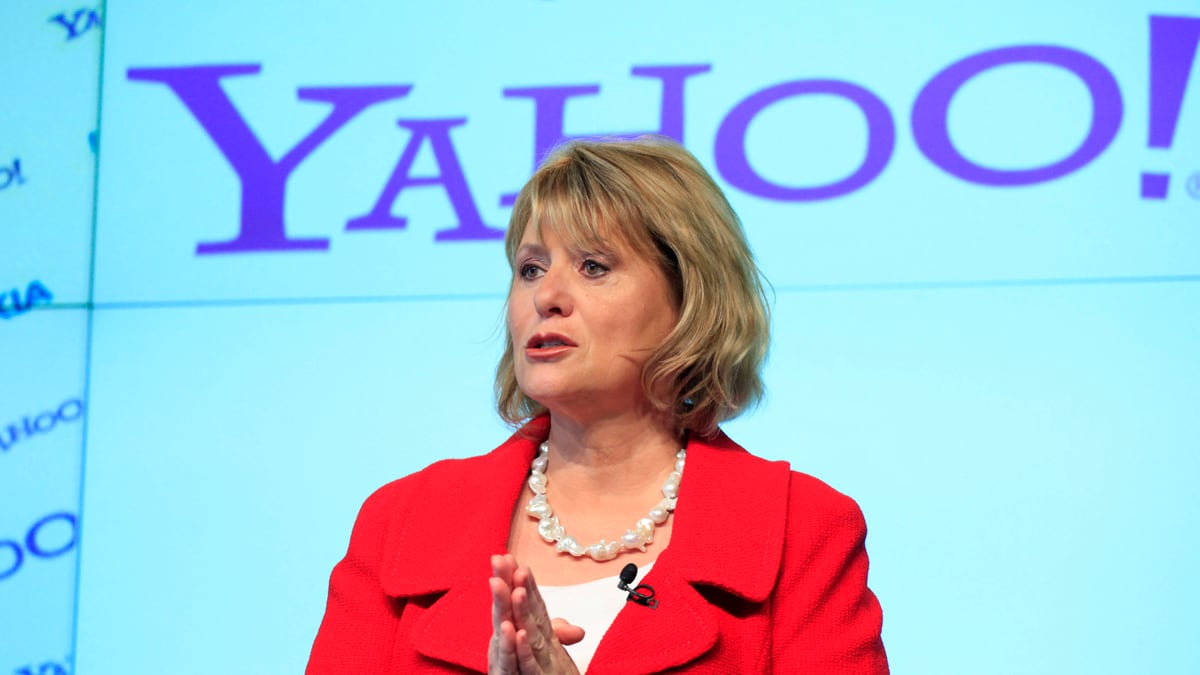Angry Yahoo shareholders have been agitating for the ouster of CEO Carol Bartz and were disappointed Thursday when the Yahoo board stood behind their besieged CEO at the company’s annual shareholder meeting.
“When I hear Carol talk, I scratch my head and wonder, ‘How did she get this job?’” says Eric Jackson, founder of Ironfire Capital, a hedge fund that holds a tiny stake in Yahoo, less than 1 percent of outstanding shares. “She just doesn’t make any sense. She doesn’t seem to have the numbers on the tip of her tongue. She doesn’t have the ability to define what the business is. She fumbles questions on earnings calls. Her answers are rambling and hard to follow.”
But Yahoo’s problems are bigger than Bartz. The company’s revenue has been in slow decline for the past few years. Meanwhile, Facebook has zoomed past Yahoo to become the No. 1 seller of online display advertising, according to eMarketer, a researcher that tracks online ad spending.
This year, Facebook will rake in $2.2 billion in display ads versus $1.6 billion for Yahoo. Last year, Yahoo was No. 2, with $1.4 billion, and Facebook generated $1.2 billion in display ads.
For years, Yahoo has suffered management turnovers and some big blunders, including a botched merger with Microsoft in 2008. Microsoft would have paid $45 billion for Yahoo, but co-founder Jerry Yang, who was then Yahoo’s CEO, turned down the offer. Yahoo is now valued at less than half that amount.

Bartz joined Yahoo in January 2009 and was supposed to clean house and engineer a turnaround for the ailing Internet giant. But over the past two and a half years, Yahoo’s stock price has barely budged. Revenue fell to $6.3 billion in 2010 from $7.2 billion in 2008. This year, analysts reckon sales will slide again, albeit only slightly.
As Jackson sees it, Yahoo’s best asset has nothing to do with its core business of delivering content on its websites. Rather, he says it’s the 40 percent stake in Alibaba Group, a Chinese Internet company that Yahoo acquired in 2005. Jackson expects that stake could increase four-fold in value by 2015.
But Jackson says Bartz has been so focused on the core business that she has failed to stay on top of the Alibaba investment. In May, Yahoo announced that Alibaba had carved off a key subsidiary—a company called Alipay, which is the Chinese equivalent of PayPal—without telling anyone at Yahoo.
That meant Yahoo’s stake in Alibaba was suddenly valued at less than it had been. Yahoo shares sank, and investors howled. How could Bartz and her team get blindsided like this?
Alibaba has claimed that Jerry Yang, who sits on the Alibaba board, knew Alipay was being spun off and agreed to it. Now Yahoo and Alibaba Group are negotiating a settlement. Jackson says he believes Yahoo will end up getting some compensation. But the fiasco doesn’t inspire confidence in Bartz and her team.
“They’ve had this incredible asset, this golden ticket. No American firm has ever made as good an investment in the Chinese Internet space. But they are obviously not managing it correctly,” Jackson says.
This week, rumors swirled that Yahoo’s board has been looking for a new CEO. A Yahoo spokeswoman said there’s no truth to those rumors and that the board is absolutely not looking to replace Bartz.
At this point it almost doesn’t matter. Yahoo has been mismanaged for so long, and made so many wrong turns, that it might be too late for anyone to turn it around.





